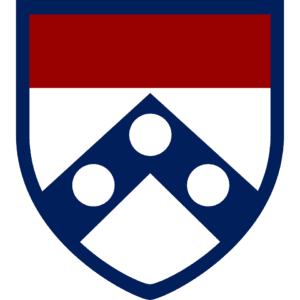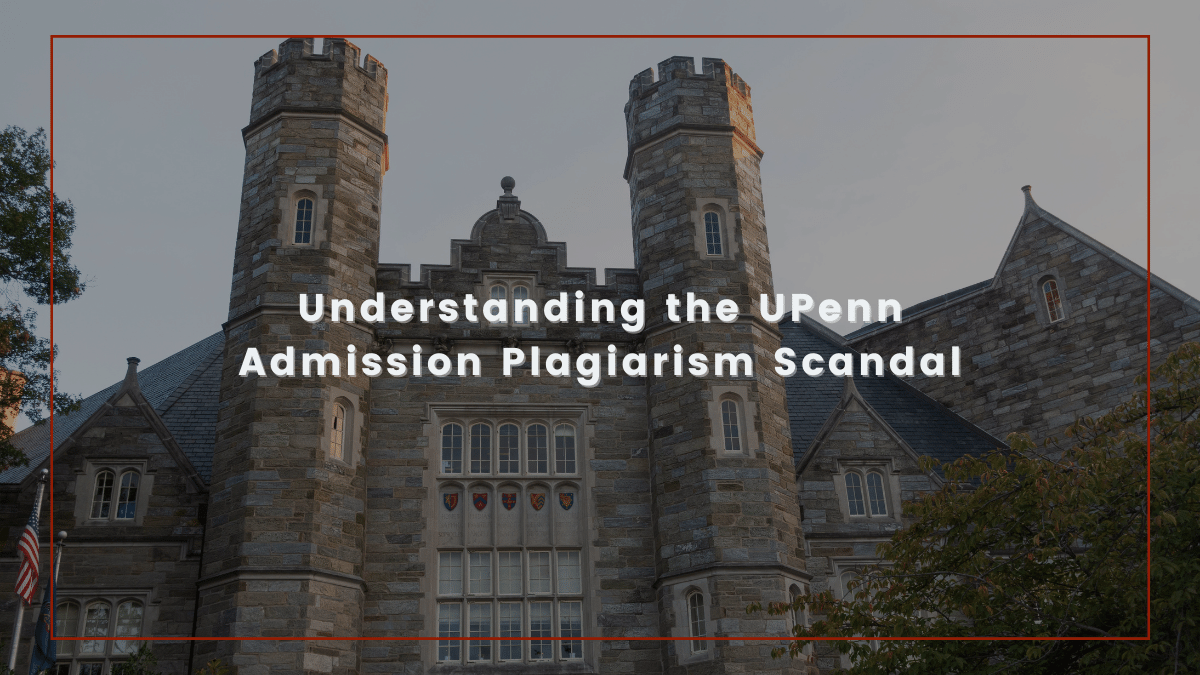The UPenn Admissions Plagiarism Scandal

Last week, a petition appeared on the site Change.org that asked the admissions department at the University of Pennsylvania to investigate a pair of students who, according to the organizers, were admitted to a prestigious program at the university despite having heavily plagiarized crucial works.
The group, identifying themselves as “For Justice in College Applications” specifically targeted two sisters, Annabelle (Seung Ah) Choi and Madeline (Myung Suh) Choi. They claim that the pair were accepted into the school’s seven-year bio-dental program despite rampant plagiarism in earlier published works.
To support these allegations, the group links to a Google Doc, which itself contains results from several Copyleaks reports.
Specifically, the group alleges that the sisters, along with two other high school students, published a series of five papers between January 2021 and October 2021, that were significantly similar to earlier published works. The similarities ranged between 46.2% and 78.2% depending on the paper.
All five papers were published in different journals. However, the journals fall under the iProclaim umbrella, an open access group that charges a publication fee. This has led some to believe that the papers were deliberately published in low-quality “predatory” journals to help the duo artificially increase their publication history.
However, the situation is further complicated by another factor, the Choi sisters are members of a prominent South Korean family. Their uncle, Han Dong-hoon, was recently appointed Justice Minister. This has helped turn this case into a deeply political one, with similar allegations being made against other members of the family.
The University of Pennsylvania has declined to comment on the case, saying they do not discuss student issues. Meanwhile, the petition has been signed over 5,500 times as of this writing.
However, the school is in a difficult position here. While the issue of plagiarism in academic research and the challenge of predatory journals is not new, it is a relatively new issue when looking at admissions offices.
Unfortunately, it looks to be an issue that admissions officers will have to deal with, especially for competitive programs.
On Predatory Journals and Admissions
Predatory journals have long been an issue in the field of academic integrity. The idea of them is fairly straightforward.
When publishing research online, there are two main approaches. Traditional publishing sees the publisher pay for the peer review process and then sell subscriptions to individuals and institutions. Open access journals make the research available to everyone, but charge the researcher a publication fee to pay for the peer review process.
While both have their merits, the open access approach has given rise to predatory journals. These are journals that simply publish almost anything in exchange for the publication fee. Some researchers unwittingly submit real research to these journals, while others deliberately use them as a means of artificially increasing their publication count.
However, those that used such journals intentionally have, on the whole, been active researchers and instructors looking to boost their careers. What makes this case special is that the people accused of it were applying to get into college, with at least two being in high school at the time.
While research integrity departments have long wrestled with these kinds of issues, now admissions departments will have to as well. This will be especially true for high competitive schools and programs, where students may seek publications as a means to improve their chances of acceptance.
That, in turn, raises a question: What is the school’s responsibility here?
Where to From Here?
Turning to the Choi siblings, the school finds itself in a difficult position.
The plagiarism itself is very clear. Even a cursory look at the various reports in the Google Docs highlights widespread copying, much of it verbatim, and clearly shows that none of the papers were truly original. This is bolstered by the fact that three of them have already been retracted.
But even with the clear-cut plagiarism, what action should be taken? It’s unclear what role these publications had in their acceptance to the program. While they certainly didn’t harm their application, how much of a help were they?
Also, what role should a university admissions team play in detecting plagiarism in academic journals? If there is a role, how should they go about doing it? After all, detecting plagiarism in already-published work can be very difficult and time-consuming.
There are no easy answers here, and the problems go well beyond this case. As younger and younger students seek publication to further their academic careers, how those are considered and verified will become a bigger and bigger challenge.
However, that’s not to let the University of Pennsylvania off here. While it’s understandable that this issue blindsided them, now is the time to figure out both how to handle this case and how to approach future ones.
One obvious step would be to turn this case over to the school’s office of research. Though such an office would usually be seeing cases involving grad students and professors, it makes sense considering the allegations involve journal publications. Though they may not be able to take direct action since the sisters were not students when the plagiarism occurred, they are the best equipped to investigate and make recommendations.
Beyond that, the admissions department needs to look at this issue and ask two questions. First, how are such pre-application publications to be weighed when considering a student for admission? Second, if it is to be weighed, how do we verify that the publications are legitimate and followed principles of academic integrity?
Though admissions departments have long dealt with plagiarism in admission essays, this is a different problem and one that current systems, most likely, are not well-equipped to handle.
Bottom Line
In the end, this case is a warning. As others have noted, without the political issues around it, it’s very likely this case would never have been detected at all. It could have, and nearly did, fly completely under the radar.
However, since we are aware of it, it’s important for all universities, not just UPenn, to realize that this will not be the last time this happens.
As younger and younger students seek publication, research integrity violations are going to become a bigger and bigger part of the academic process. The time to think about these issues and create policies to approach them is now.
In the end, while this case may be best known for its political intrigue, it may be best used as a wake up call for universities all over the world.
Want to Reuse or Republish this Content?
If you want to feature this article in your site, classroom or elsewhere, just let us know! We usually grant permission within 24 hours.
